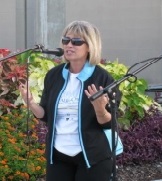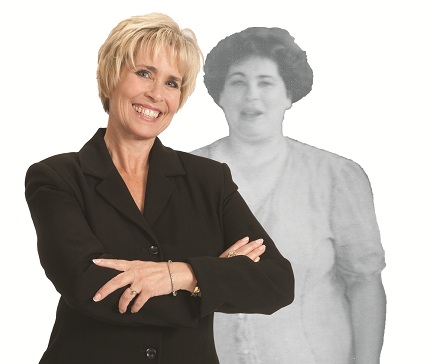Weight Bias, Bariatrics & Me

In preparing for a presentation on Obesity Sensitivity, I have made a number of surprising discoveries. First, I recognized and owned up to my own weight bias. I am a weight loss surgery patient celebrating 20 years of successful weight management. I topped out at 250 pounds on my small 5’2 frame. I was ‘obese’ unhappy, unhealthy and struggled with the shame and guilt as so many do. I had to wait nearly 3 years and then had to pay cash. A hard fought battle to be sure.
Having experienced many of the physical and emotional challenges endured by those who struggle with obesity, I expect myself to be empathetic, understanding and kind, and I believe I am. However, I uncovered some deeply seeded weight biasesafter taking two common tests: The ATOP (Attitudes Towards Obese Persons and the BAOP (Belief About Obese Persons) in Obesity.
Awakened and enlightened, I am now committed to become better educated, more aware, more involved, and do my share. I have been a member of the Obesity Action Coalition since its beginning. Applauding their good works from the sidelines, this recent experience has helped me learn more about what they do and come to a greater understanding of the importance of this work. I see clearly that weight loss surgery patients have a keen understanding of this topic.
As WLS patients, individually and collectively, we get it! We know how it is to carry hundreds of unwanted pounds. We know how scarce attractive clothing can be and how hard it is to get up and down off the floor. We know how it feels to be invisible, to be stigmatized and discriminated against. It is because we know that we in a unique position to make a difference. Here are a few suggestions to get you started:
6 Things Bariatric Patients Can Do to Help Reduce Weight Bias:
- Be willing to tell your story out loud, on a website and through Social Media. Feel free to start here: Bariatric Support Facebook group.
- Identify your own biases, attitudes and beliefs (Take the ATOP, BAOP).
- Learn more about our disease The Obesity Society.
- Become an advocate, get involved Obesity Action Coalition.
- Reach out to someone who may be struggling with empathy and understanding.
- Voice your views and opinions about the care you received before, during and after your surgery.


Alex Brecher 10,515
Posted
Colleen, Thank you for addressing one of my biggest frustrations – bias in bariatrics! I think everyone who has ever been obese has experienced bias or outright discrimination from everyone from colleagues to, sadly, healthcare professionals.
But I don’t know if we take the time to think about our own bias, as you suggest. Are we proud of ourselves, or ashamed? Can we honestly say we treat and think about obese, formerly obese, and never-obese people the same? That’s a great checklist for beginning to think about our own thoughts and actions. Also, I love the link to the ATOP and BAOP – taking those tests can be so enlightening and give us ideas for how to help ourselves and others.
Share this comment
Link to comment
Share on other sites